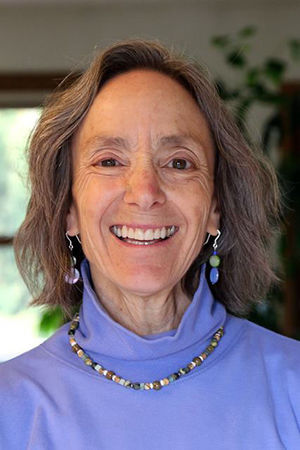This week’s Torah portion is entitled, “K’Doshim,” which means “to be holy” or holiness. It can be found in Leviticus 19:1-20:27. The parsha or Torah portion begins with the words: k’doshim tihihu, tihihu being the plural form of “you.” G-d spoke to Moses saying, “Tell all of the people that they should be Holy, as I am holy.” What an awesome and challenging message! Each of us, individually and as a whole have been tasked by G-d to live out our days in holy community with each other. Not just the priests or the leaders but each and every one of us. No small task.
As you can imagine, the sages of old as well as modern commentators, have wrestled with these words since time immemorial. Does holiness require us to live apart/separate from the material world, as some would argue, or are we tasked to bring holiness into the give and take of everyday Life? Most would argue the latter, I believe.
“You shall love your neighbor as yourself,” How simple yet profound are these words. Holiness is found in community. As the Rabbinic scholar, Hillel, said, “What is hateful to you, do not do unto others.” It is not enough to just care intensely for your own kind. We must stretch ourselves to love those not like us; to recognize the holy in each individual.
Holiness comes not just through ritual acts or sacred study, but in the ways that we relate to one another. It extends beyond the walls that keep us within our own comfort zones or familiar spheres. We are commanded to not just see the stranger but to turn that stranger into someone with whom we can share community.
For some, the words holy and holiness may connote a sense of mystery, something beyond which we can truly comprehend or participate in. However, within the last half of the book of Leviticus, which is entitled the “Holiness Code,” it is clearly spelled out how each of us can live a more holy life, in community with others: revere our parents, keep the Sabbath, do not turn to idols, take care of the poor, do not steal or lie, or profane G-d’s name. There are also prohibitions about defrauding others, abusing those with disabilities and treating strangers badly.
Each and every interaction in our everyday lives affords us the opportunity to “Be like G-d,” to be holy, just and stretch ourselves beyond what is known and familiar. We can all strive to treat others with kindness and compassion, with justice and fairness with respect and dignity. These are all human acts of holiness through which we can resemble and imitate, in some small measure, the Divine.
As we go about our ordinary lives, we are commanded to “bring heaven down to earth,” to honor both the separateness and sacredness of each person we encounter. We are all strangers in a strange land. Opening ourselves up to know and understand “the other” can lead to self awareness as well as a sense of peace of mind.
Ultimately, to be holy means to see and respect the holiness that surrounds us, to recognize the beauty and wonder in each day; to reach beyond ourselves; to act as a partner with G-d and each other to make this world a better place for all.
Coincidentally, as I am writing these words, I am well aware that today marks the 54th anniversary of my bat mitzvah, the ritual ceremony of becoming a “daughter of the commandments”. How much I have grown and learned since that time, now so long ago that it is but a faded memory. How much more I still need to learn! I am grateful for all the faith-based, ecumenical and interfaith opportunities living in Helena has afforded me. I strive to live with “eyes wide open”. Earlier, when I mentioned that the great sage Hillel said, “What is hateful to you, do not do unto others”, I neglected to mention the rest of the story. It goes as follows: A man had come before Hillel, tongue somewhat in cheek, asking to be taught the entire Torah while standing on one foot. While others scoffed at the man, Hillel responded with his now famous words but did not stop there. He went on to say, “The rest is commentary. Now go study”.
Life is a journey. We are all on a path. Let us strive to live our Lives with grace, respect, understanding and holiness. May learning never end and hope reign eternal.
NOTE: This article appeared in the print version of the Helena Independent Record on May 14, 2016. Online version available here.

 Click here to subscribe to our RSS feed with your favorite email client and be alerted to new articles.
Click here to subscribe to our RSS feed with your favorite email client and be alerted to new articles.